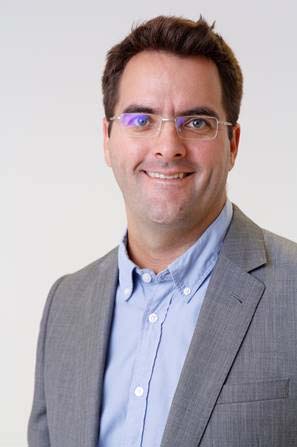Entrepreneurship is often positioned as a solution for South Africa’s unemployment crisis, yet it will only make a real difference to job creation and the country’s economy if larger organisations and government give newly-minted entrepreneurs the support they need to succeed.
 That’s according to Andrew Wood, CEO at The Unlimited, who says that becoming entrepreneur does not mean going it completely alone.
That’s according to Andrew Wood, CEO at The Unlimited, who says that becoming entrepreneur does not mean going it completely alone.
Wood says that providing entrepreneurs with access to mentoring, training, and infrastructure can significantly boost their chances of long-term success.
Says Wood: “Not only do studies such as the Global Entrepreurship Monitor consistently find low rates of entrepreneurial activity in South Africa, researchers indicate that as many as 80% of South African small businesses will fail within their first three years. This is a statistic that deserves far more attention.
“Reasons for the low rate of small business success in South Africa are numerous and complex. However, some of the most important factors are a lack of access to funding and business infrastructure, difficulties in identifying a viable product (or service) and market, and lack of knowledge around how to run a business.”
Wood notes that despite the popular perception that entrepreneurs are self-made mavericks, most have succeeded because of their existing networks of contacts, access to funds from friends, family or savings, and the ability to leverage infrastructure such as their home office or a family member’s premises.
Says Wood: “The odds are stacked against people who cannot afford to put in place basic infrastructure such as a home office or have no experience in running a business. But entrepreneurship is a potential pathway out of poverty when young entrepreneurs are given the tools and knowledge they need to become truly self-sufficient.”
This is why The Unlimited has developed a business model that focuses on helping entrepreneurs, especially the youth, to start and scale businesses of their own.
The company brings young workers on board and helps them to develop direct marketing businesses in the financial services sector. They go through a specialised training programme in sales and marketing including teamwork, goal-setting and planning, confidence-building, influencing and motivating others, and conflict-handling.
Some go on to set up businesses of their own. The Unlimited currently has more than 50 business owners serving its customers, many of whom are under the age of 30 and are earning between R30 000 and R100 000 a month. Each started working for the company, marketing its products either through face-to-face interaction or telemarketing.
“The opportunity is aimed at people who have an entrepreneurial outlook on their careers and who would ultimately rather work for themselves and be in control of their own growth,” says Wood. “Many of those we work with today employ dozens of people.” Sydwell Khoza is one example.
Before joining The Unlimited, Khoza was a bricklayer. Today, he runs a nationwide business with 300 people in five offices. “Many South Africans are not aware that they can own their own business,” says Khoza. “People need to be taught about how to become an entrepreneur, as it is foreign to so many of them.”
Khoza says to be an entrepreneur, one needs to be open to learning new things and to doing things you haven’t done before. You should also have a great attitude and be committed to growing the business through its ups and downs.
Wood says: “With a youth unemployment rate above 50% and total unemployment of above 27%, South Africa needs creative approaches to job creation. We must look at ways to set more South Africans on an entrepreneurial path and to help them build sustainable businesses that last.”
